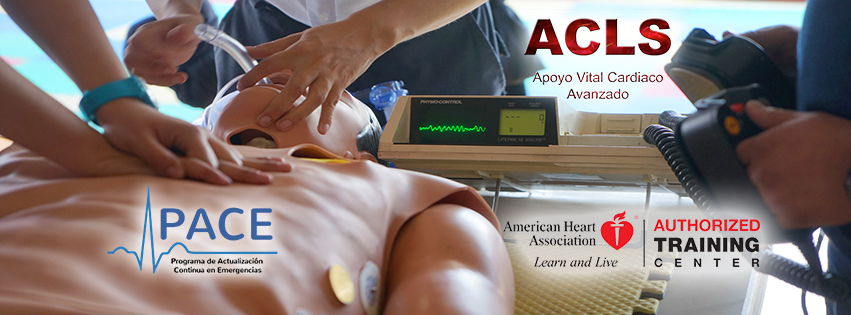(ACLS) Advanced Cardiovascular Life Support
What is?
ACLS is an advanced, instructor-led classroom course that highlights the importance of team dynamics and communication, systems of care and immediate post-cardiac-arrest care. It also covers airway management and related pharmacology. In this course, skills are taught in large, group sessions and small, group learning and testing stations where case-based scenarios are presented.ts.
Target of this course
Primary Audience:
• Physicians
• Physician Assistants
• Nurses
• Pharmacists
• EMTs/Paramedics
What are the elements of this course?
- Classroom-based
- Instructor-led
- Features active participation in case-based scenarios
Course completion time is approximately 8 hours (7 to 7.25 hours without breaks and 8 to 8.5 hours with breaks).
Objectives of this course
After participating in this activity, participants will be able to:
1. Recognize and initiate early management of periarrest conditions that may result in cardiac arrest or complicate resuscitation outcome.
2. Demonstrate proficiency in providing BLS care, including prioritizing chest compressions and integrating use of an automated external defibrillator (AED).
3. Recognize and manage respiratory arrest.
4. Recognize and manage cardiac arrest until termination of resuscitation or transfer of care, including immediate post-cardiac arrest care.
5. Recognize and initiate early management of acute coronary syndromes (ACS), including appropriate disposition.
6. Recognize and initiate early management of stroke, including appropriate disposition.
7. Demonstrate effective communication as a member or leader of a resuscitation team and recognize the impact of team dynamics on overall team performance.
Table of contents
- Applying the expanded systematic approach (ACLS-EP Survey) to patient assessment, evaluation and management
- Cardiovascular Emergencies
- Cerebrovascular Emergencies
- Respiratory and Metabolic Emergencies
- Post-Cardiac Arrest Care
- Clinical Pharmacology and Toxicology Emergencies
- High Quality CPR
- Effective communication within a resuscitation team and recognition of the impact of team dynamics on overall team performance
